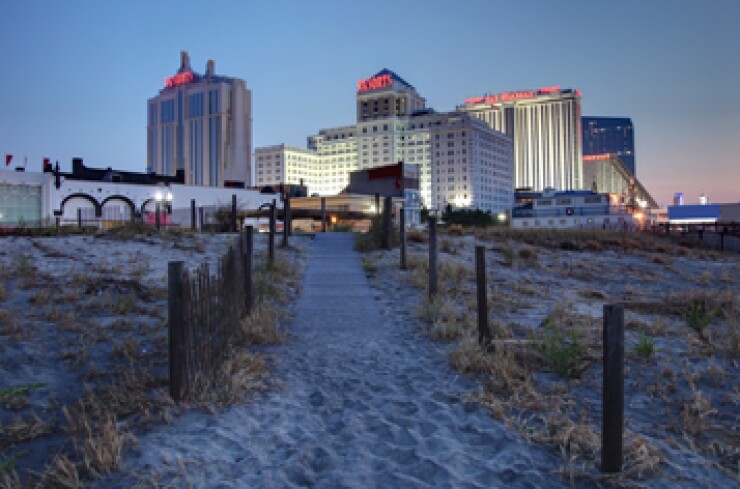
Atlantic City's ability to close a $101 million deficit in its adopted fiscal 2015 budget is a credit positive for a city that has been under distress this year, according to Moody's Investors Service.
Moody's analyst Josellyn Yousef said in a Sept. 28 report that the Sept. 22 adoption just three months before the end of the fiscal year calendar eliminates Atlantic City's "immediate financial crisis" and allows it to mail fourth quarter tax bills, which will result in about $16.5 million of revenue. The budget, which was approved by New Jersey's Local Finance Board, also enables the city to collect $23 million in tax lien sales for delinquent taxes from casino property owners Trump Properties and Polo North, owner of the shuttered former Revel casino.
To plug the $101 million budget gap, the local finance board allowed Atlantic City to defer $38.9 million of pension and health benefit contributions. The state also provided $14 million in grant revenue, $13 million in transitional aid and $33.5 million in casino-redirected anticipated payments.
Yousef noted that while the budget approval is a credit positive, Atlantic City will face severe challenges in fiscal 2016 and beyond unless there is "significant budget reform" or financial support from the state. Four of Atlantic City's 12 casinos were shuttered in 2014 and the potential closing of other struggling gambling operators would deprive it of a stable flow of tax revenue, according to Yousef. A financial relief package for Atlantic City approved by the New Jersey Legislature last June still awaits Gov. Chris Christie's signature.
"Whether the state will support the city in 2016, when it faces a $90 million gap if redirected casino payments and transitional state aid do not recur, is uncertain," said Yousef in her report. "Although the city cut about $11.6 million in ongoing expenditures, its structural deficit is a significant 34% of 2015 expenditures."
Yousef said the city would benefit from any stabilization in its gambling market since total casino revenues declined 10% from September 2014 through August 201 in part because of the four closures. The casinos that remain open have seen their revenue increase about 5% over that same time period, but the Trump Taj Mahal, Caesars and Bally's are struggling while in Chapter 11 bankruptcy. Atlantic City relied on casino property taxes for about 50% of its total budget in fiscal 2014 and is facing additional regional competition.





